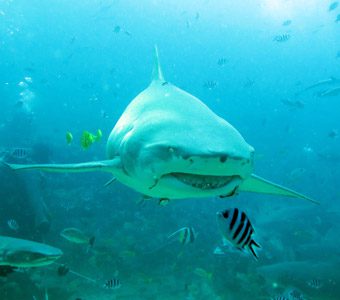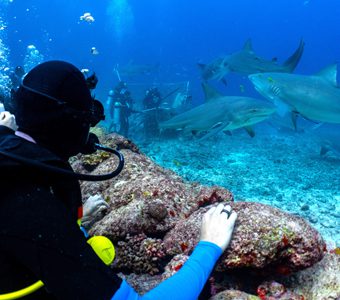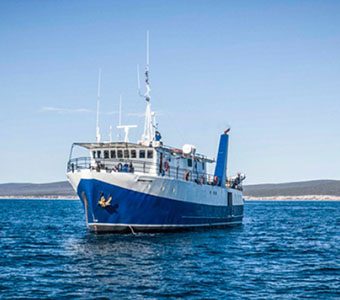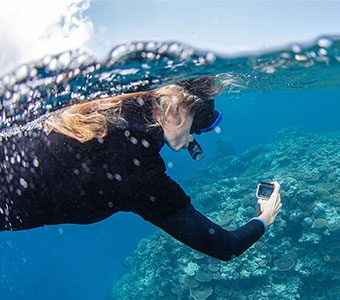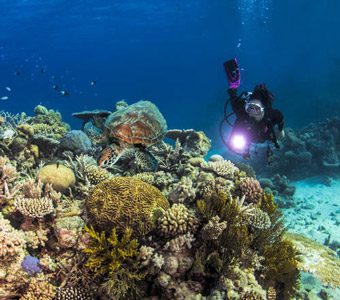Summer is on its way, and with more and more people keen to get back to the beach and back in the water, we’ve seen an increase in shark incidents this spring. Should we be afraid of sharks? Do shark nets work? How can we keep ourselves safe from sharks?
Conversely, millions of sharks are killed every year, usually only for their fins. Now there is an additional threat to shark populations as conservationists warn that half a million sharks could be killed for a Covid-19 vaccine.
We thought it timely to relook at the ways in which we humans keep ourselves safe from sharks and discuss who is really in more danger – humans or sharks, in this exclusive interview with Sydney Aquarium’s shark expert Rob Townsend.
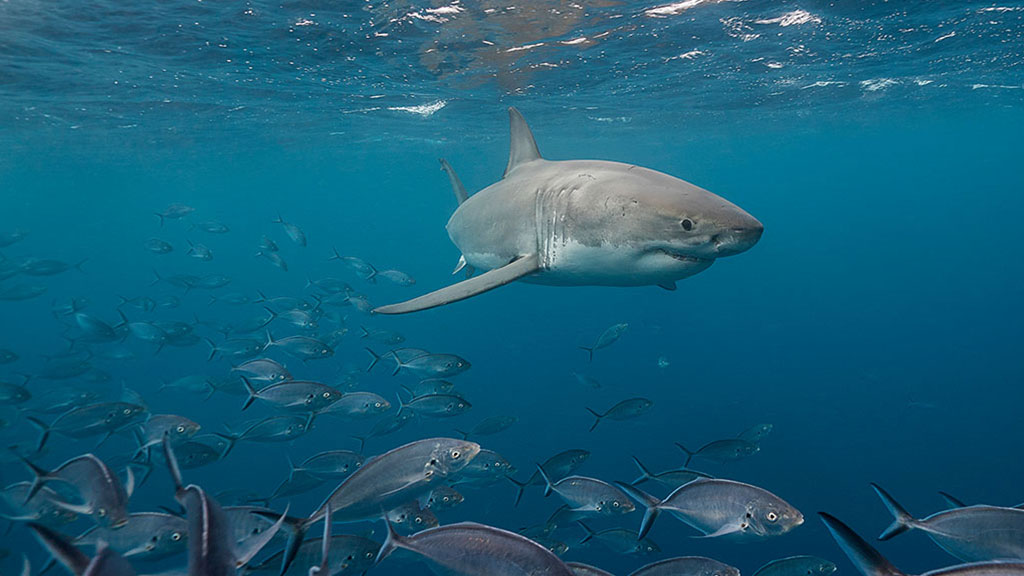
Do you think our current shark mitigation program is working?
There are currently a number of strategies being used in an attempt to minimize shark interactions with people including shark nets, drum lines and electronic deterrents. Many of these methods actively seek to kill sharks of certain species to prevent them from setting up “territories” in areas frequented by people.
While these methods may work, their ecological impact far out ways any benefits. The small increase in shark interactions we have seen this year is unlikely a reflection on these activities but may be attributable to a number of other factors or may even simply be a statistical anomaly.
Why do you think we have seen an increase in incidents (have we in fact seen an increase?)
We need to look at the numbers here, we talk about an increase in deaths here, but the total numbers are still in single figures. Yes, there has been an increase however our starting point was so low this shouldn’t really be news. You could choose almost any other cause of death and be assured that it would be more than sharks (road accidents, domestic violence, drowning, dogs, bees, livestock all individually kill more Australians than sharks do every year). An increase year on year of three deaths would not rate a mention if it were car accidents or heart disease.
It stands to reason that shark numbers are increasing, as protection measures for some shark species increase, along with protection for their prey (whales). This coupled with Australia’s rising population (currently 26 million) means interactions between sharks and humans are likely to increase and how we manage and minimize the likelihood of these interactions will be key.
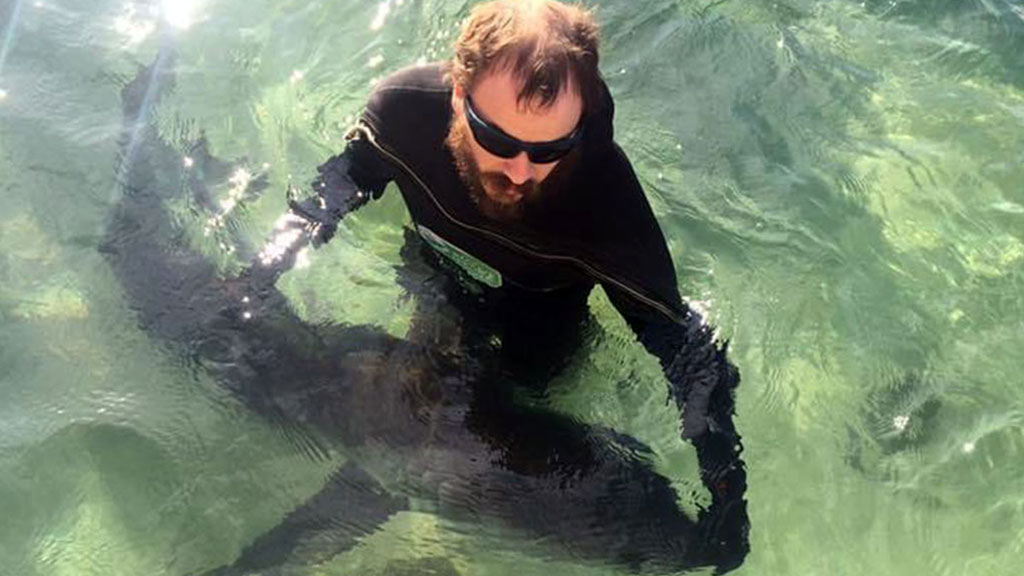
A common response to shark incidents (since Jaws) is to hunt down the “rogue shark”. Is there such a thing as a rogue shark or is this a myth?
The fact that humans are almost never eaten by sharks dispels the myth that a shark can develop “a taste for human flesh” and “go rogue”. Almost all shark bites on humans are cases of mistaken identity where the shark realizes that the human is not the seal or turtle it thought they were and swim away, unfortunately these initial investigatory bites are sometimes enough to cause fatal injuries. Some species of shark will show a level of site fidelity which is why sometimes the “same” shark will be seen in an area on multiple occasions however most of the species implicated in interactions with people are pelagic migratory species so are unlikely to spend too long in one area.

Since shark nets have been put in place this year, we’ve also witnessed several whale entanglements – how great risk are shark nets to marine life?
Shark nets are designed to kill, and they do it very well, unfortunately. They do not discriminate and kill all sorts of non-target species like whales, dolphins, turtles and a myriad of non-target shark and ray species – many of which are endangered. The annual report for the NSW “bather protection program” makes for very sobering reading. It is unconscionable that this archaic technology is still in use in 2020.
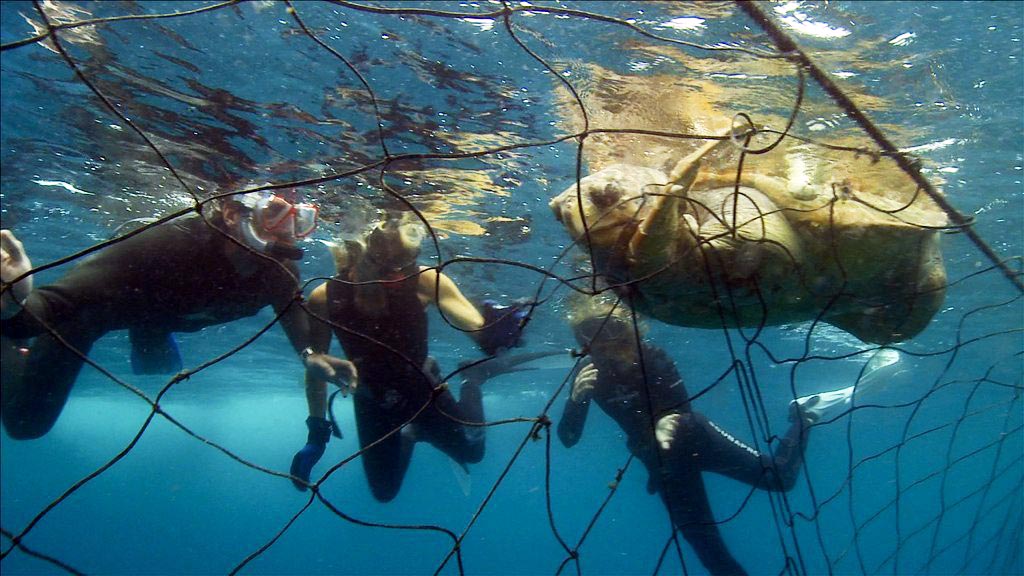
Do shark nets keep us safe from shark incidents?
NO! Many people think shark nets are an impenetrable “fence” that stops sharks from getting to the beach, this is not the case.
Shark nets are usually set at one end of a beach and sit in the mid-water (the theory being that air-breathing animals can swim over and bottom dwellers like rays can swim under and that target sharks will be caught in the net and die therefore preventing them from setting up “territories” near popular beaches.
Statistics show that many of the target species caught are stuck in the beachward side of the net indicating they have already been to the beach (not eaten anyone) and then been caught as they were swimming away. WA beaches do not have shark nets and do not show a statistically significant difference in shark interactions compared to those states that do.
How effective has the drumline program been?
It is hard to determine the effectiveness of a program like this as much like shark nets, drum lines are designed to kill sharks, they are however far less damaging to non-target species. A distinction should be made regarding “SMART” drumlines which more often allow sharks to be released alive.
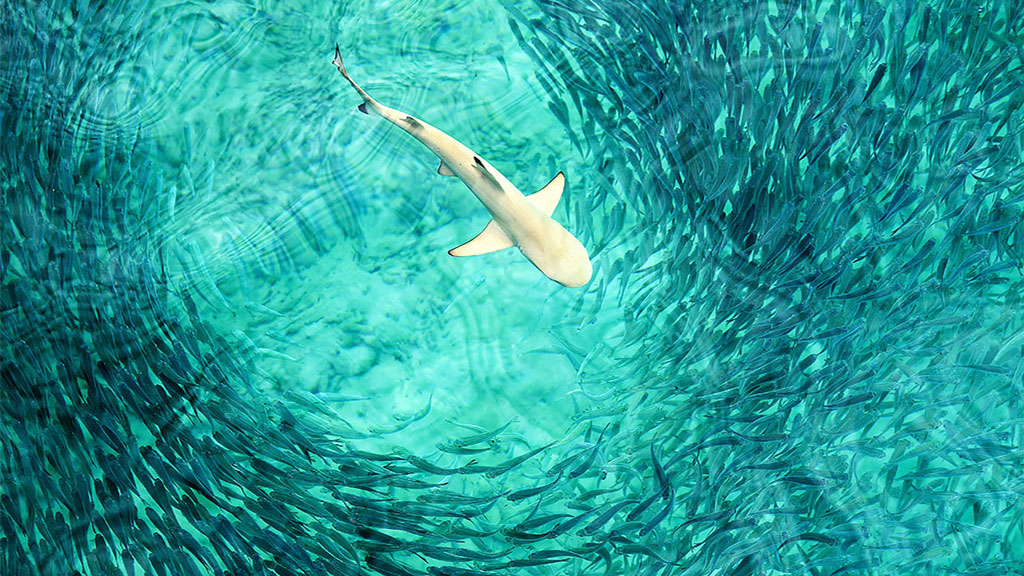
What better ways could we keep ourselves safe from sharks?
- Swim at patrolled beaches.
- Don’t swim/surf alone.
- Avoid entering the water at dawn or dusk (some shark species prefer to hunt at these times).
- Don’t enter the water where there are “bait balls” or other signs of increased fish activity.
Should sharks be more afraid of humans than we are of them?
100%! Humans kill over 600,000 tonnes of sharks (over 100 million individuals ☹ ) every year as opposed to the average of less than 10 humans killed by sharks each year. Even in Australia sharks are legally killed for meat and fins.
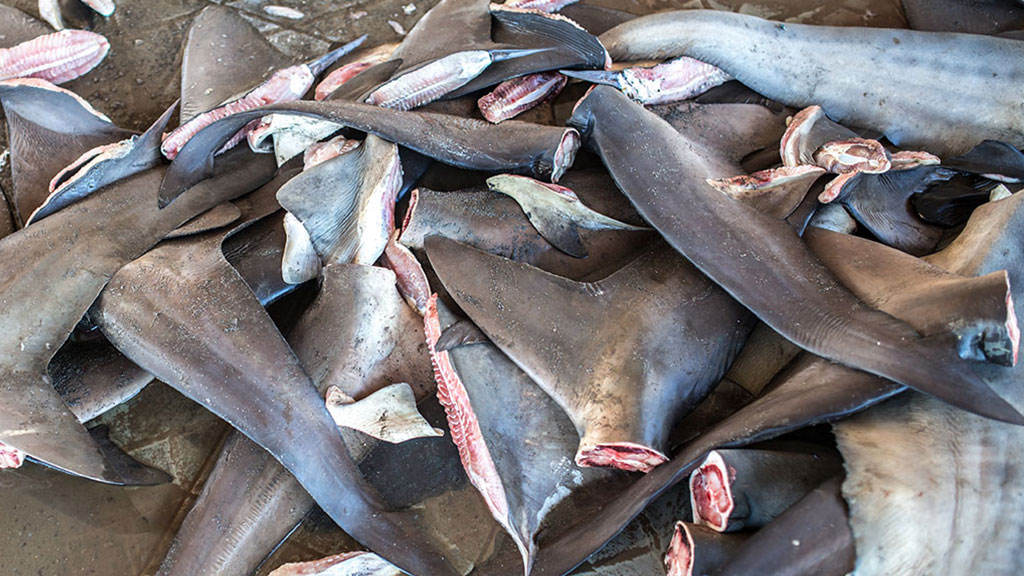
Now there is an additional threat to shark populations as conservationists warn that half a million sharks could be killed for Covid-19 vaccine. One of the ingredients in some versions of the Covid-19 vaccine under development is squalene, which currently comes from the livers of sharks. In response, scientists are racing to test a synthetic version, made from fermented sugar cane, which would mean plentiful supplies without threatening shark populations.
What can Australia do to better protect sharks?
Know what you are eating! Much of the “fish and chips” sold in Australia is shark meat (especially anything marketed as “flake”). Make sure the fish you eat is sustainably harvested (best to order a specific species rather than just “fish”).
Never ever never eat shark fin soup and petition any local restaurants to stop serving it. In many countries, sharks are caught, have their fins cut off and their bodies are dumped back into the ocean while they are still alive.

Education is key to the protection of sharks.
Education is an important factor in the protection of sharks. Sydney Aquarium has some fantastic interactive exhibits that explain the threats to sharks.
Another great way to learn more about sharks is to go diving with them, especially when you’ve got experts on board to share their knowledge. South Australia’s Neptune Islands is one of the few places in the world you can get up close and personal with great white sharks and one of the best ways to do that is with Rodney Fox Expeditions.
There are several places along the NSW coast where you can dive with grey nurse sharks, and there are also great reef shark dive experiences on the Great Barrier Reef with Mike Ball Dive Expeditions. Fiji is famous for its shark dives, where you can get up close and personal with nurse, lemon, reef, bull and tiger sharks.

